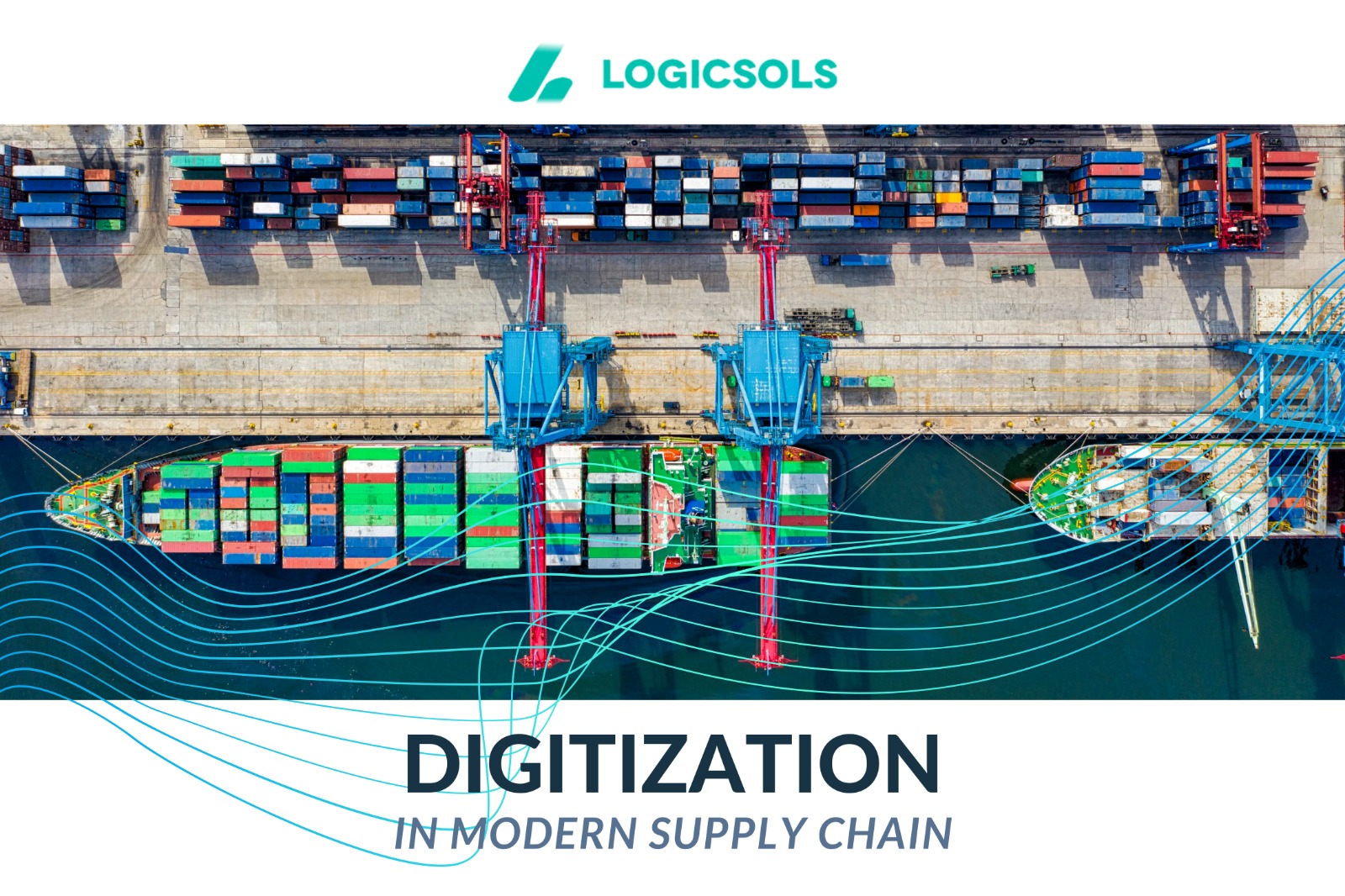Digitization in Modern Supply Chain

Introduction
Logistics has completely evolved in the last three decades: From being just an operational function under procurement or manufacturing, with the purpose of ensuring fulfilment and customer deliveries, to becoming a separate supply chain management function in the world of complex transportation and global trade. As global economies became more interconnected, trade became more complex, involving multiple sourcing locations requiring complex supply chain strategies to optimize the value chain. Complexities in the movement of goods resulted in applying logistics strategies that helped businesses to operate effectively requiring an infinite number of resources. A simple quote request would result in multiple emails, follow-ups, countless tracking questions and phone calls, reams of paper involving contract and KPI prints. Organizations dealt with this by throwing resources at a problem as technical solutions were limited at best.
The key to transformation amongst cargo carriers and freight forwarders is Digitization, which is meant to result in cost savings, plugging the leakages and creating high efficiency in logistics operations. The key operations, though, have failed to evolve here even though this is an industry of large value with a global presence. In the majority of organizations, the most common mode of operation comprises hybrid supply chain models. The hybrid supply chain is a combination of paper-based and IT-supported processes. The gap in technology has created multiple issues in the whole supply chain. The silver lining, amidst the problems, is the acknowledgment of the problems by industry stakeholders.
Various industry surveys highlight these below facts:
- 98 percent of supply chain technology decision-makers are trying to find improvements in their logistics technology stack. Furthermore, all shippers are under real pressure to repeatedly increase efficiency and that they are watching technology as a way to realize this.
- 88 percent of shippers believe technology may be a core part of the solution — more than ever in the past. They need technology to enhance transparency and reliability.
- 88 percent of the shippers who contract to get freight to say technology is vital when choosing a logistics provider. In fact, 65 percent say they either have or are getting to implement real-time visibility and insight tools within the next two years.
- 83 percent of shippers say having a logistics partner with local and global expertise is vital , which suggests having a worldwide network, staffed by people with local expertise (on regulations, culture, and language).
These findings weren’t surprising to us at Logicsols, and everybody within the freight industry must acknowledge and understand that digitalization isn't just a buzzword, it’s inevitable because sustaining and transacting large volumes manually has now become obsolete. That being said, the key implications of the facts are to drive customers and push suppliers to use an enhanced solution that not only provides visibility but the intelligence to drive smart decisions.
The digital transformation in the logistics industry has been ongoing for the past few years, but many high profiled shippers, carriers and 3PL’s have failed for one simple reason as the thought process has always been “complex problems always require complex solutions”.
Our mantra at Logicsols has always been “Complex problems don’t require complex solutions”
At Logicsols we are trying to solve all these problems through a single solution where we combine smart flow, analytics, and AI to solve business problems. Here is how Logicsols can help.
- A single solution that connects shippers and suppliers to create and manage the entire logistics cycle digitally in the most efficient manner possible.
- Unique design and smart flow process requiring minimum inputs for data output.
- Real-time visibility into shipments across multiple transport modes, which enhances business’s abilities to plan resources efficiently and alert downstream partners proactively, resulting in cost saving and improved service levels.
- Our solution enables customers to manage the entire RFQ - Invoicing process completely digital, eliminating the need of countless emails, shipment updates, invoice approvals or disputes. Allowing customers to focus on their core competencies.
- AI driven dashboards & reporting suite provides Smart Analytics to eliminate inefficiencies and costs without sacrificing service levels.
And much more…….
